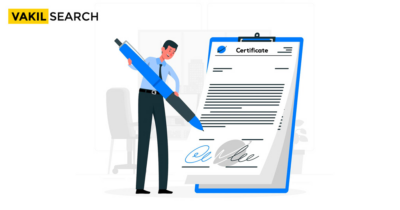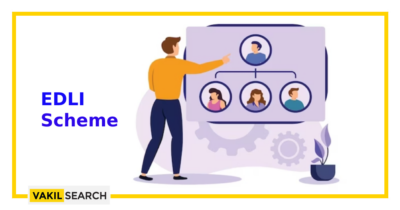Taxation laws have been amended by the Indian Parliament. Earlier this year, the Government promulgated the Taxation and Other Laws (Relaxation and Amendment of Certain Provisions) Bill 2020. Under the I-T Act, faceless assessments will be applied to at least eight processes, including tax collection and recovery.
Introduction
In terms of human imagination and possibilities and Legal Compliances, it has been said that we, as a modern civilization, are still on the brink of human progress. With the emergence of several initiatives like Start-up India, Make in India and Digital India there has been a renewed importance of innovation in the technology space, especially because it underpins almost every other business and industry. Through bolstered online shopping, concepts like the Internet of Things quickly catching up and cloud computing growing by leaps and bounds, it is not surprising to note the growth in tech businesses operating as Software as a Service (SaaS), Platform as a Service (PaaS) and Infrastructure as Service (IaaS).
Understanding Legal Compliances Requirements:
- What is Compliance? Compliance refers to adhering to a set of rules and regulations established by governing bodies or internal policies. In the context of software development, it signifies ensuring your software products and development practices conform to relevant legal, industry, and security standards.
- Why is Compliance Important? Compliance is crucial for several reasons:
- Legal Adherence: Non-compliance can lead to legal repercussions, including fines, penalties, and even business shutdowns.
- Market Access: Many industries require compliance with specific standards to operate and sell their products or services.
- Enhanced Security: Complying with security regulations helps build trust with users and protect their data from vulnerabilities.
- Reduced Risk: Adhering to compliance standards mitigates various risks associated with data breaches, privacy violations, and operational disruptions.
Compliance Standards in Specific Industries:
- Financial Services: Standards like PCI DSS (Payment Card Industry Data Security Standard) safeguard sensitive financial data and ensure secure payment processing.
- Healthcare: HIPAA (Health Insurance Portability and Accountability Act) and HITRUST (Health Information Trust Alliance) regulations protect patient privacy and data security in the healthcare sector.
- Software Development: GDPR (General Data Protection Regulation) and CCPA (California Consumer Privacy Act) address data privacy rights and security measures for user data collected and processed by software applications.
What Are the Security Risks When Developing Software?
- Software Vulnerabilities: Improper coding practices, outdated libraries, and inadequate security testing can introduce vulnerabilities into software, making it susceptible to malicious attacks.
- Data Breaches: Insufficient data security measures can lead to unauthorized access and exfiltration of sensitive user data.
- Privacy Violations: Improper data collection, storage, and usage practices can violate user privacy regulations.
- Denial-of-Service (DoS) Attacks: Malicious actors can exploit software vulnerabilities to disrupt service by overwhelming the system with traffic, hindering legitimate users’ access.
If you set certain Legal Compliances and abide by that the security risks can be lowered.
What are the Risks of Ignoring Legal Compliances and Security in Software Development?
- Legal Ramifications: Ignoring compliance can lead to hefty fines, lawsuits, and even criminal charges for organizations.
- Reputational Damage: Data breaches and security incidents can severely damage an organization’s reputation, leading to loss of customer trust and market share.
- Financial Losses: Recovering from security incidents can incur significant financial costs, including remediation, legal fees, and customer compensation.
- Operational Disruptions: Security breaches and non-compliance can disrupt operations, impacting software functionality and user experience.
How to Ensure Security in Software Development?
- Secure Coding Practices:
- Employ secure coding techniques to mitigate vulnerabilities from the ground up.
- Utilize coding standards and frameworks that promote secure development practices.
- Regular Security Testing:
- Implement comprehensive security testing throughout the development lifecycle to identify and address vulnerabilities early.
- Employ tools like static and dynamic code analysis, penetration testing, and vulnerability scanning.
- Data Security Best Practices:
- Implement robust data encryption, access controls, and user authentication mechanisms to safeguard sensitive data.
- Follow the principle of least privilege, granting users only the minimum access required for their roles.
- Secure Software Development Lifecycle (SDLC):
- Integrate security considerations into all phases of the SDLC, from design and coding to deployment and maintenance.
- Foster a culture of security awareness within the development team and organization.
Elevating Security Measures in Software Development:
- Threat Modeling:
- Proactively identify potential threats and vulnerabilities through threat modelling exercises.
- Prioritize security controls and mitigation strategies based on the identified threats.
- Continuous Monitoring:
- Implement continuous security monitoring solutions to detect and respond to security incidents promptly.
- Regularly review security logs and system activity for suspicious behaviour.
- Security Awareness Training:
- Conduct regular security awareness training for developers and other team members to educate them about security best practices and potential threats.
- Promote a culture of security responsibility by encouraging team members to report suspicious activity and potential vulnerabilities.
Legal Compliances to Start a Software Company
After finalising the business structure for your idea and getting business space, employees and other formalities sorted, here are the various legal compliances necessary to start software company and run it:
-
Securing a Domain Name
Whether you register for a partnership firm, LLP or a get company registration form of business, all registration documents require the specification of a business name. Since the name of your software company will become your defining identity, it is of foremost importance to secure ownership over your domain name, as almost all your clients, suppliers and investors would want to see your online presence.
-
Ownership Over Intellectual Property
It is also ideal for early-stage businesses to secure ownership over intellectual property, such as brand names, trademarks, and patents. This is so because, in the case of a possible infringement, such as someone else using the same name, logo or goodwill, it is easier to establish your rights over IP. Most investors, while taking a call on your start-up businesses’ worth, also factor in the IP value that you may gain in the future. For those into inventions of a scientific nature, it is imperative to seek a patent registration at the earliest as the average time taken from filing to the actual grant is about five years in India.
-
Insurance, an Absolute Must
Since most software companies have the largest asset base in the form of back-end technology and data rooms, it is very important to get insurance for assets from natural disasters like fire, and heavy rain and also get appropriate cover for the risk of default in case you take debts with your asset base as collateral.
-
Safeguarding Yourself Against Data Leaks
While this does not count as statutory compliance, carelessness in the IT space can be catastrophic. If dangers of heating, short-circuiting and WiFi troubles weren’t enough, a possible data leak poses threats that may have far-reaching consequences, the effects of which may be hard to undo.
With the GDPR enforcement, there is an even stronger need to protect the sensitive information of your clients and also undertake additional measures where consent is required for data collection.
-
Security, Accountability & Audit
Under the GDPR, the privacy policy has to be published on the website and made accessible. It must state the type of data collected, the purpose of collection, disclosure of information and reasonable security practices and procedures. Moreover, managerial, technical, operational and physical security control measures for data protection have to be specified. According to Rule 8 only IS/ISO/IEC code of best practice and the codes duly approved and notified by the Central government shall qualify as security standards. Organisations are also obligated to perform a yearly audit of such practices and procedures.
-
Negotiating Confidentiality Clauses & Copyrights
From scouting for the best of coders and developers to offering them competitive packages, software development is a highly people-centric industry where skills play an important role. However, it is imperative to negotiate confidentiality clauses with your employees to ensure that programs developed and codes written during their employment vest with your organisation and not with those creating them. This can be done by including strict clauses in the employment contract about copyrights and heavy penalties for breach of confidentiality.
License, Permits and Other Approvals:
- As a startup working in any sphere, where food industry or fibre-optics and computing technology, all the sectors would require some level of getting approvals. It’s a good idea to speak to senior players in the same business who may be able to enlist permissions needed before you begin.
- Getting all your regulatory papers in place is likely to give out the impression to a prospective client, supplier or investor that you have done your basic groundwork right. It may also help you navigate through contingency clauses which are often inserted by smart lawyers to avoid their clients from potential losses due to the rejection of licenses.
Outsourcing Filings
When you scale your IT Start-up to a larger level, the floodgates of taxation, labour legislation and corporate legal compliances may open. In such a scenario, it’s prudent to outsource such work, which is likely to help you focus on your core competencies and meet deadlines better.
Conclusion
It is our pleasure to assist you with all of your legal needs at any time. We would be delighted to assist you in any legal matter if you would like legal advice.
FAQs
What are the compliance requirements for software?
Compliance requirements for software refer to the set of legal, regulatory, and policy standards that software products and activities related to their development, deployment, and maintenance must adhere to. This includes data protection and privacy laws (like GDPR), accessibility standards, industry-specific regulations (like HIPAA for healthcare), and security standards (such as ISO/IEC 27001).
What is legal compliance in IT?
Legal compliance in IT involves ensuring that all IT practices, processes, data handling, and software development within an organization comply with applicable laws and regulations. This includes data protection laws, copyright laws, anti-piracy laws, and any other legal requirements specific to the industry or region.
Why is compliance important in the IT industry?
Compliance is crucial in the IT industry to protect sensitive data, maintain user privacy, ensure data integrity and security, and foster trust among users and stakeholders. It helps avoid legal penalties, financial losses, and reputational damage that can arise from non-compliance.
What is the difference between legal and regulatory compliance?
Legal compliance refers to adherence to laws enacted by legislative bodies, while regulatory compliance involves following rules and guidelines set by regulatory agencies or bodies. Legal compliance is mandatory and has broader scope, whereas regulatory compliance might be more specific to an industry or type of activity.
What are the 5 key areas of compliance?
The five key areas of compliance typically include:
- Data Protection and Privacy: Ensuring personal data is handled following privacy laws like GDPR.
- Information Security: Protecting information from unauthorized access, disclosure, alteration, and destruction.
- Financial Compliance: Adhering to financial regulations, such as anti-money laundering (AML) laws and Sarbanes-Oxley Act (SOX).
- Operational Compliance: Following industry-specific standards and practices, including health and safety regulations.
- Employment and Labour Law Compliance: Ensuring fair labour practices and adhering to employment laws.
What are legal compliances in a software company?
In a software company, compliance involves ensuring that software products, development processes, and business operations meet the required legal, ethical, and technical standards. This includes compliance with licensing agreements, data protection laws, export control laws, and software quality standards.
What is compliance in the IT industry?
Compliance in the IT industry encompasses a broad range of practices to ensure that IT operations, software development, data management, and cybersecurity measures adhere to necessary legal, regulatory, and ethical standards. It includes everything from data privacy and protection to software licensing and intellectual property rights.
Why is legal compliance needed?
Legal compliance is needed to ensure that organizations operate within the bounds of the law, thus avoiding legal disputes, fines, and penalties. It protects the rights and safety of consumers, employees, and other stakeholders, and maintains the integrity and reputation of the organization in the marketplace.
Read more:-










